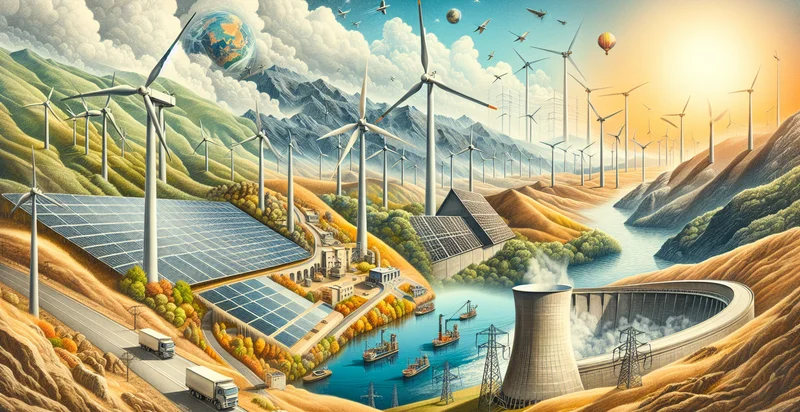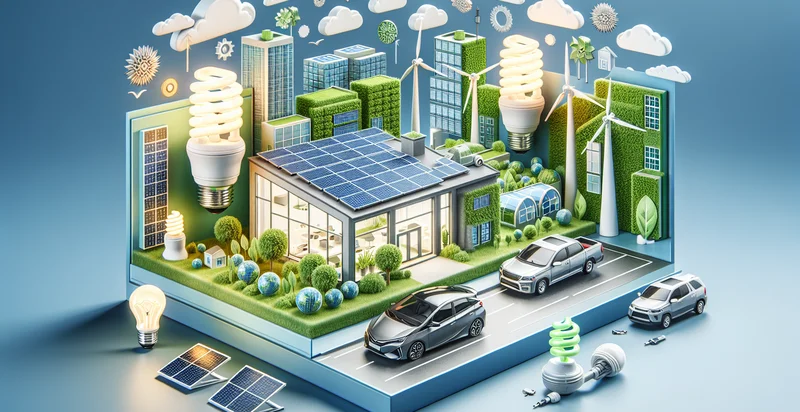Identify types of energy sources
using AI
Below is a free classifier to identify types of energy sources. Just input your text, and our AI will predict what type of energy source it is - in just seconds.

Contact us for API access
Or, use Nyckel to build highly-accurate custom classifiers in just minutes. No PhD required.
Get started
import nyckel
credentials = nyckel.Credentials("YOUR_CLIENT_ID", "YOUR_CLIENT_SECRET")
nyckel.invoke("types-of-energy-sources", "your_text_here", credentials)
fetch('https://www.nyckel.com/v1/functions/types-of-energy-sources/invoke', {
method: 'POST',
headers: {
'Authorization': 'Bearer ' + 'YOUR_BEARER_TOKEN',
'Content-Type': 'application/json',
},
body: JSON.stringify(
{"data": "your_text_here"}
)
})
.then(response => response.json())
.then(data => console.log(data));
curl -X POST \
-H "Content-Type: application/json" \
-H "Authorization: Bearer YOUR_BEARER_TOKEN" \
-d '{"data": "your_text_here"}' \
https://www.nyckel.com/v1/functions/types-of-energy-sources/invoke
How this classifier works
To start, input the text that you'd like analyzed. Our AI tool will then predict what type of energy source it is.
This pretrained text model uses a Nyckel-created dataset and has 16 labels, including Battery Storage, Biomass, Carbon Capture, Coal, Fossil Fuels, Geothermal, Hydrogen, Hydropower, Natural Gas and Nuclear.
We'll also show a confidence score (the higher the number, the more confident the AI model is around what type of energy source it is).
Whether you're just curious or building types of energy sources detection into your application, we hope our classifier proves helpful.
Related Classifiers
Need to identify types of energy sources at scale?
Get API or Zapier access to this classifier for free. It's perfect for:
- Energy Source Classification for Regulatory Compliance: This function can be utilized by businesses to classify different types of energy sources they use or report on. By accurately identifying energy sources, organizations can ensure compliance with government regulations and sustainability reporting standards.
- Market Analysis for Renewable Energy Investments: Investors can use this classification function to categorize energy sources in potential investment opportunities. This aids in identifying trends and making informed decisions related to renewable energy markets by comparing the viability and performance of various energy sources.
- Enhanced Supply Chain Management: Energy companies can implement this function to categorize their energy supply sources effectively. By understanding the mix of energy sources, businesses can optimize their supply chain processes, reduce costs, and enhance operational efficiency.
- Customer Education and Engagement: Companies can leverage this classification tool to create informative content that educates customers about various energy sources. This knowledge can elevate customer engagement and position the company as a thought leader in the energy sector.
- Environmental Impact Assessment: Organizations involved in energy production can use this function to classify energy sources and assess their environmental impacts. This information is crucial for developing strategies to reduce carbon footprints and enhance sustainability initiatives.
- Risk Management in Energy Procurement: Businesses can use energy source classification to evaluate risks associated with different energy sources in their procurement strategies. By understanding the stability and availability of these sources, organizations can mitigate potential disruptions and ensure reliable energy supplies.
- Competitive Analysis in the Energy Sector: This classification tool can assist energy firms in conducting thorough competitive analyses by identifying the energy sources used by competitors. Insights drawn from this data can guide strategic marketing and operational decisions to gain a competitive advantage in the market.


